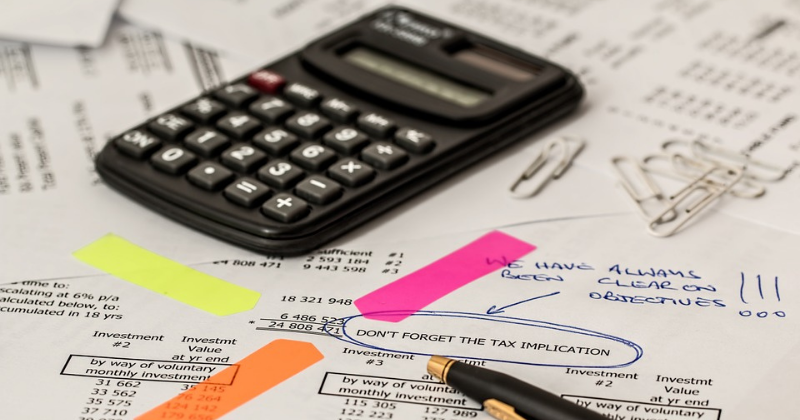Introduction
On 25th September, 2020, the Cabinet Secretary of National Treasury and Planning Ukur Yattani (“the CS Treasury”) gazetted two regulations under the Value Added Tax Act being the Value Added Tax (Electronic Tax Invoices) Regulations, 2020 and the Value Added Tax (Digital Market Supply) Regulations, 2020. These Regulations come at a time when there is pressure on Kenya Revenue Authority (“KRA”) to collect more taxes and the need to optimize the taxation of the ever-growing digital economy. In this legal alert, we give an overview of these two regulations.
Value Added Tax (Electronic Tax Invoices) Regulations, 2020
These Value Added Tax (Electronic Tax Invoices) Regulations, 2020 have been enacted to ensure that daily supply of goods and services is monitored for purposes of taxation. As such, these Regulations require every VAT registered person under section 34 of the Value Added Tax Act (“VAT Act”) to have a register.
A register is defined under these Regulations as “an electronic tax invoicing or receipting system that is maintained and used in accordance with these Regulations.”
The objective of these Regulations is to ensure that: the KRA’s system will be integrated with other entities’ such as National Transport Safety Authority, Kenya Power, National Construction Authority and other agencies; and that there is efficient transmission of data from the Register into KRA’s system thus improving the efficiency of collecting taxes.
Use of the Register
The register is used to ensure that each sale is recorded at the point of sale. An invoice is recorded with respect to each sale and thereafter the invoice generated is transmitted to the purchaser and the invoice details transmitted to KRA on a daily basis.
Accordingly, these Regulations places the following obligations on the part of a VAT registered taxpayer: ensure that the register is available at the point of sale; facilitate the inspection of the register by the registered person; ensure that the register is properly maintained through regular servicing; keep and maintain a register every time a register is serviced including record of persons who serviced; and comply with any other requirements as directed by the Commissioner.
The Taxpayer is also required to ensure continuity of operations of the register if there is an interruption of power supply.
Further, if at any given time the user is unable to use the register, such a user should notify the Commissioner within 24 hours and user will be given directions on an alternative mode of keeping the record. Once the user is able to use the register, such a user is expected to register the sales which were recorded in the alternative manner into the electronic register. Additionally, if the user intends to stop using the register either because of closure of business, cessation of supply of Vatable supplies or any other reason, the user should notify the Commissioner of the intended discontinuation 30 days prior to the discontinuation.
Requirements in A Tax Invoice
The Taxpayer shall ensure that that the PIN of the registered user, time and date of the invoice, buyers PIN, total gross amount ,total amount, item code of supplies for exempt, zero-rated supplies as provided by the Commissioner is entered, brief description of goods and services, quantity of supply, unit measure, tax charged, unique register identifier, unique invoice identifier , quick response (QR) code and any other requirement as may be specified by the Commissioner.
Specifications of the Register
In order for the register to be effective it should: be capable of being connected with information technology networks; have sufficient storage to maintain records; display clear messages in the official languages; be secure and tamperproof; be capable of being integrated with the Authority’s system; be capable of transmitting data to the systems; allow for updating of changes tax laws; and be capable of capturing information required by the regulations.
Impact of the Regulations
The regulations will enable efficient tax collection by KRA as it provides the Authority with necessary information on transactions involving the persons registered for VAT. It is therefore a mandatory requirement that every VAT registered taxpayer must have. The Electronic Tax Registered will also alert KRA of Taxpayers who are charging VAT and have not registered obligation thereby widening the tax base as the taxpayer will be required to activate VAT obligation.
The Register shall be capable of transmitting the KRA’s system the tax invoice data and the end of day summary of the respective day’s data in the manner specified by the Commissioner. The import of this is, KRA shall have real time information and this will also eradicate the VAT inconsistencies which have caused problems as Output and Input declared sometimes results in mismatched data.
The Regulations requires that all VAT registered persons should have a Register in place on or before 25th September 2021. Provided that a VAT registered taxpayer can on application to the Commissioner, at least 30 days before the 25th of September, 2021, seek for an extension of compliance which extension shall not exceed six months.
Offence
Failing to comply with the Regulations will result in a conviction and one shall be liable to pay a fine not exceeding one million shillings, or to imprisonment for term of not exceeding 3 years, or both.
The Value Added Tax (Digital Market Supply) Regulations, 2020
The Finance Act of 2019 introduced the taxation of services offered at the digital marketplace, hence, these Regulations have been enacted to offer further guidelines on the Value Added Tax to be charged on supplies made in the digital market place.
Scope of Taxable Supplies
The Regulations define the following supplies as taxable supplies at the digital market place:
- Downloadable digital content including mobile applications, e-books and films;
- Subscription based media including news, magazine and journals;
- Over the top services including streaming television shows, films, music, podcast and any other digital content;
- Software programmes which include software, drivers, website, filters and firewalls;
- Electronic data management including website hosting, online data warehousing, file sharing and cloud storage services;
- Music and games;
- Search engine and automated help desk services including customizable search engine services;
- Tickets for live events, theatres and restaurants;
- Distance teaching through pre-recorded media or e-learning including online courses and training;
- Digital content for listening, viewing or playing on audio, visual or digital media;
- Services that link the supplier to the recipient including transport hailing services;
- Electronic services under section 8(3) of the Act; and
- Any other service that is provided through a digital market place and is not exempt under the Act.
Registration
The Regulations regards a person as a supplier of digital services and as eligible for VAT registration in the following instance. Firstly, where the supplies are made by a person in an export country to a recipient in Kenya in a business to consumer transaction(B2C).
Secondly, where the person is conducting business in Kenya as provided under section 8(2) of the VAT Act and either: the recipient of the supply is in Kenya; the payment of the services is made to a supplier in the export country from a bank registered under the Banking Act; or the payment of the services that is made to the supplier in the export country is authorized in Kenya.
If the export country (non-residents) who make business to consumer (B2C) supplies chooses not to register under the simplified framework, they have the option of appointing a tax representative to account for the VAT on their behalf in accordance with Section 15A of the Tax Procedures Act, 2015.
The regulations also provide for a simplified VAT registration framework which applies to export country (non-residents) who makes supplies on in the digital marketplace. The registration will be done online using a format to be prescribed by the Commissioner after which the applicant will be issued with a PIN for purposes of filing returns and payment of taxes.
Further, the Regulations also requires that a B2C supplier who has registered under these Regulations is exempted from issuing the electronic tax invoice. However, notwithstanding the exemption, they will still be required to issue a receipt showing the value of supply and tax deducted thereon. The Regulations also provide the option for deregistration, upon application to the Commissioner, for a non-resident who is no longer making supplies in the digital marketplace as provided in Section 36 of the VAT Act.
Place and Time of Supply
Given that the time and place of supply is crucial in determining when VAT is due, these Regulations provide that a digital supply is deemed to have been made where: the recipient of the supply is in Kenya; the payment proxy including credit card information and bank account details of the recipient is in Kenya; or where the residence proxy of the recipient is in Kenya.
As to the time of supply, it shall be earlier of the date on which the supply is received in part or in whole; or the date on which the invoice or receipt for the supply is issued. It is important have the correct declaration made as this will determine whether additional assessments may be raised in future should KRA find that wrong information was provided while declaring VAT.
Claim for Input Tax
Crucially, a deduction for VAT input by a supplier shall not be allowed for B2C transactions for supplies in the digital marketplace. This is a departure from the provision of Section 17 of the VAT Act.
Impact of the Regulations
These regulations will widen the tax base and enhance tax collection by the Authority. However, it is a case of “wait and see” for us to assess the efficiency of collecting VAT on a digital economy given the transnational nature of the digital economy. Further, KRA may have some challenges when it comes to enforcing these Regulations against international digital market players.
All digital suppliers are required to comply with these regulations not later than 25th February 2021. Additionally, the Regulations are categorical that a person who fails to comply with these regulations shall be liable for penalties under the VAT Act or the Tax Procedures Act.
This alert is for informational purposes only. If you have any queries or need clarifications, please do not hesitate to contact Lilian Renee Omondi ([email protected]) Partner, Wanjala Opwora ([email protected]) Associate or your usual contact at our firm, for advice relating to the new VAT Regulations on Electronic Tax Invoices and Digital Market Supply.





